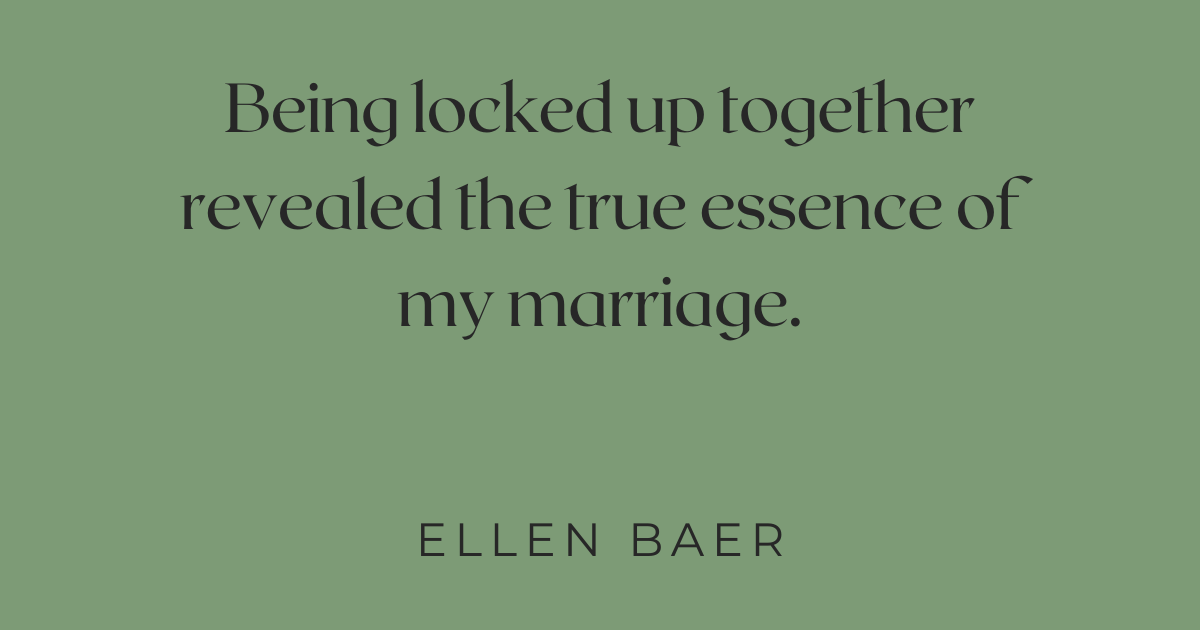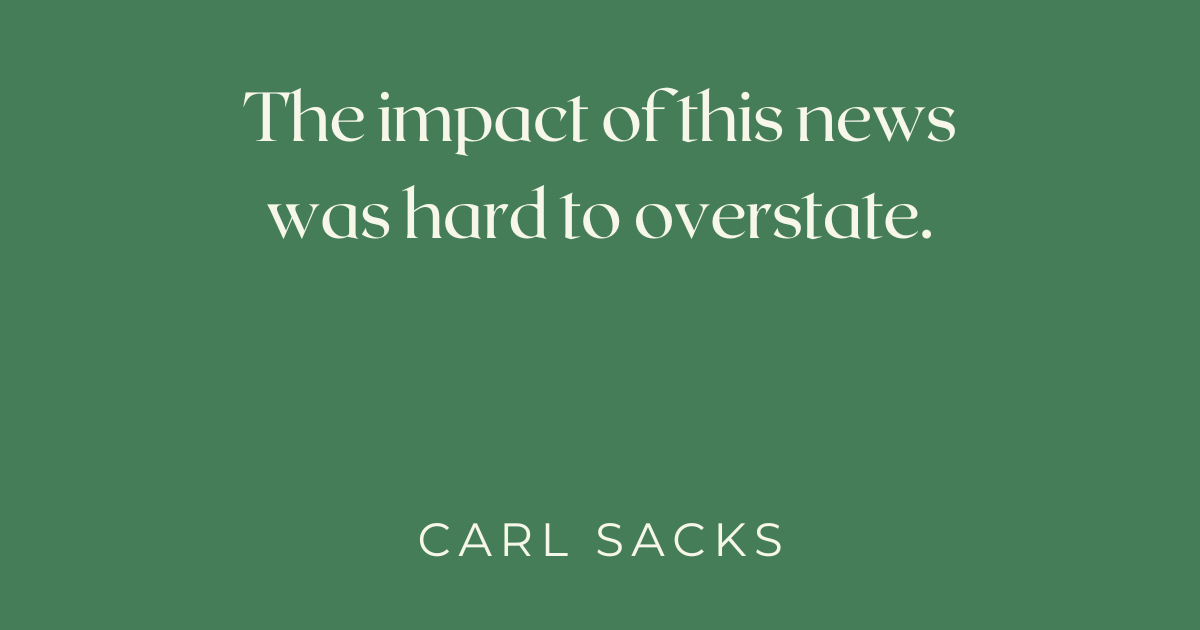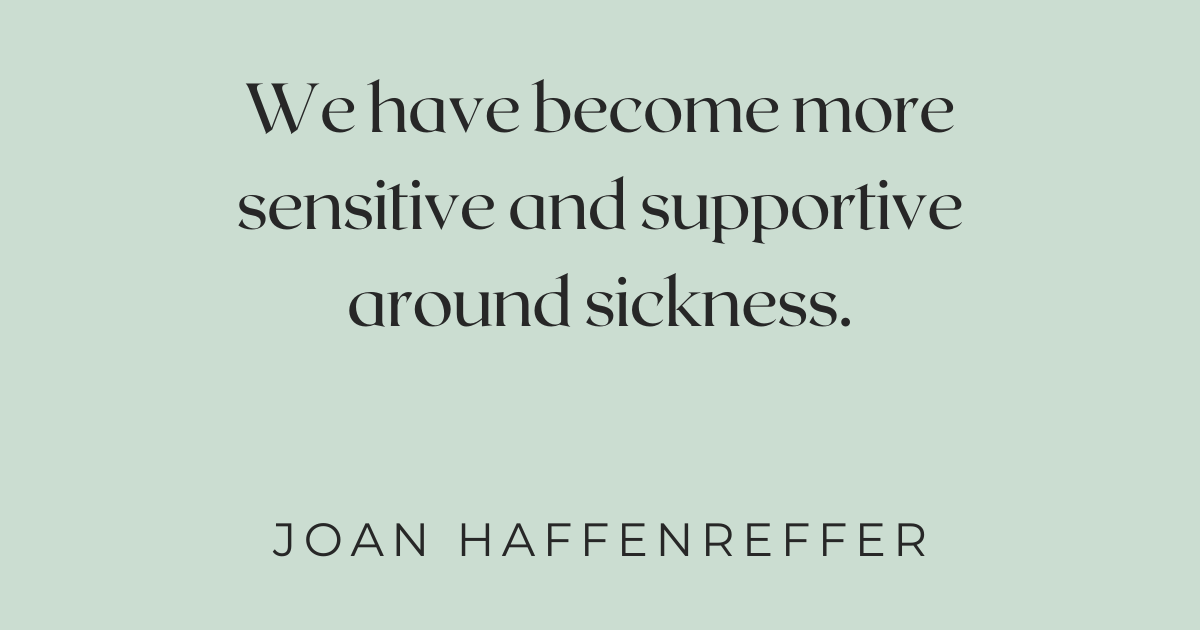COVID REFLECTIONS
By Ellen Baer

With what thoughts or memories do you approach March 2023?
My reflections are somewhat clouded by the death of my mother in February 2022. Though the proximate cause of death wasn’t listed as COVID, she certainly died from a string of events set in motion by her contracting COVID. But there’s much more to remember…
Where were you in March of 2020. Is there a moment that stands out in your memory?
Prior to our return on March 11th, we were in Australia and New Zealand. Both were impacted by the lack of tourists from China and we were delighted to have no lines anywhere. I remember sitting at an outdoor bar at the Great Barrier Reef with the hotel owner who suggested everything be shut down worldwide for a couple of weeks to get a handle on this. We thought he was nuts. When we came back to NYC we worked for one day before everything shut down.
What about the early days of lockdown do you remember most?
Were you with or separated from family?
My most vivid memories of the early days is the fear – not just of getting sick but of getting sick and not being isolated from my family. Early on, my husband and I decided that if one of us got sick, we wouldn’t isolate from the other – something that now sounds foolish and selfish to me. I was desperately worried about my elderly mother who lived alone not far from us. Remember in those days we worried about the virus being spread by grocery bags. Everything was terrifying. And surreal. At one point, I didn’t set foot outside my apartment for 28 days. I wore flannel pajama pants all the time.
How did you adapt to lockdown? Was there any silver lining?
Adapt, we did. I threw myself into my work, and found that working remotely suited both me and my staff. We came up with work contingencies, threw them away, came up with new ones; we thought about someone other than ourselves. There was, quickly, a new normal. We found there were more hours in the day. When I could, I’d sneak in a nap.
My 7 year old grandson called me every day after “school” so we could play a game online together. My husband became the purchasing manager for my mother and for us. Soon we had all the toilet paper and paper towels anyone could want. Though we didn’t see her in person, my mother felt cared for and content.
Soon (in April 2020) my husband and I moved out to our beach house on Fire Island. I was terrified of getting sick from the water taxi driver who ferried all of our stuff to the island. But once we were there, everything changed. My husband worked in one room and I another. We developed a pod, though still no one went inside each others’ houses. We bought heat lamps for outside. As it got warmer and we relaxed a little, we began to treasure being together. My 4 grandchildren unable to do their summer activities, masked up and came and stayed with us in various combinations all summer.
I can honestly say, that except for the fear and the sadness – or maybe because of it – we felt extra close to our friends and family in our pod. We treasured the time we had together. Things slowed down. There was an implied poignancy, a sweetness.
Has the Covid era affected your work or professional aspirations?
I’ll never work in an office full time again. I’m towards the end of my career and that’s a choice of made that’s irreversible. I won’t give up the flexibility or the independence, or the occasional nap.
Do you have any family experiences to share?
See above. Also, like so many couples, being locked up together revealed the true essence of my marriage. I’m lucky that was a good thing. Avery good thing. I love having lunch with my husband in the middle of the week.
How have we changed as a society – what stands out for you?
I don’t think COVID changed us, per se, as much as it exposed and accelerated changes that were already simmering beneath the surface. Political differences and class differences became more vivid and disturbing. The five day work week probably died forever. Our health care system, with all its heroism and its inadequacies, was on display to everyone. Black Lives Matter and the attendant reactions to it, took center stage. We largely stopped going to movie theaters.
What are some of the changes you have made that stick to this day?
I still wear a mask on the subway. I did however, stop using my Peleton and rejoin the gym.
What will you remember most about these years?
The strangeness of it. The whole thing felt like an anomaly, though I don’t think we’ll ever be the same. It was like 9/11 in that way.
How do you feel about “going back to normal” – do you feel or sense a resistance to it?
I don’t think there’s any going back. I think we’re struggling to define a new normal. We’ll get there.
How you feel about NYC?
Never, ever bet against NYC.
MARCH MELTDOWN
By Carl Sacks, Leading Caterers of America

On March 9, 2020, the catering industry was beginning its annual gathering of the tribes in Las Vegas, also known as Catersource. The attendees started the week in a festive mood, having come off a generally very successful 2019 catering year. The future looked bright, and most of the caterers were looking forward to bigger and better business opportunities.
There had been some concern expressed about a contagion breaking out, including a quarantine order for those returning to the US from Wuhan China. But most of the Catersource attendees assumed that this would have only a minimal impact on their businesses.
However during that week, it all got very real all of a sudden. Quarantine orders for cruise ship passengers, and stay at home requirements for the entire state of California, got a lot of attention. Then on March 11 during the middle of the industry conference, the World Health Organization designated the breakout as a pandemic.
For those of us who were involved in organizing or running sessions for the conference, the impact of this news was hard to overstate. Early in the day on the 11th, things seemed relatively normal. But by the middle of the day, attendees were running out of the room during the middle of classes to take urgent phone calls from their home offices. The buzz around the conference was that events were being cancelled right and left, and that the industry faced a most serious crisis in the modern era.
By the end of the 11th, the attendees had started to depart Las Vegas to head home, a day or two earlier than they had planned. The stay-at-home orders began to spread around the country, and virtually all catered events were cancelled or postponed. Of course, everyone still needs to eat, so the catering industry didn’t close down altogether. But the meal programs and delivery services the caterers began to offer in no way replaced the events revenue that was lost.
Covid has proved to be the most consequential external event in the history of catering – much more so than Black Monday, 9/11, the Great Recession, or any other recent catastrophe. Overall industry revenue declined by 45% between 2019 and 2020, and without some government grants and subsidies many caterers wouldn’t have survived.
Yet business has started to improve, and the expectation is that it will continue to for the foreseeable future. The recovery that the catering industry has enjoyed proves the concept that man is a social animal, and that interactive events facilitated by food and drink are important to society as a whole.
COVID REFLECTIONS
By Joan Haffenreffer

With what thoughts or memories do you approach March 2023?
How difficult that period was for so many people, in particular older people who could not socialize, families with young children who couldn’t attend schools and who missed out on opportunities to learn social skills at a critical moment. For me, it was a time of reflection and spend more time with my family.
Where were you in March of 2020. Is there a moment that stands out in your memory?
I was in the office preparing for a large conference and wondered as each day passed what was going to happen and what effect the pandemic would have on our global operations. I remember planning initially that half my team would work one week and the other half the next to keep social distance. I left work for what I thought would be a week or so that turned into close to two years as companies and government worked together to find an approach that would make people feel more confident that there was an action to be taken that would make a difference.
Were you with or separated from family?
I spent the pandemic largely with my husband in the country and I did not see my kids for a long period. We had regular “family” zoom calls that helped. As time went on, my younger son who lives in Seattle came out for long periods of time which helped enormously. My oldest son was living in London where a very different approach was taken, and we were genuinely concerned that the idea of promoting “herd immunity” posed risks to everybody. Rules were loosely enforced.
How did you adapt to lockdown? Was there any silver lining?
We moved out to East Hampton and used the opportunity to explore, enjoy long walks and garden. We also cooked a lot more, even if it was more difficult to find the ingredients we wanted.
Has the Covid era affected your work or professional aspirations?
I work in a hybrid work environment now (3 days in the office and 2 remote) and feel even more productive. But this isn’t optimal, especially for new joiners and young professionals looking to benefit from the mentoring that comes with direct interaction and meeting a cross section of senior professionals across the company.
Do you have any family experiences to share?
Given how geographically spread out our family is (NYC, Seattle, Zurich), Covid encouraged us to maintain higher levels of family chat. One of our sons gifted us a smart video portal with a wide-angle camera so we could talk “hands free”. We also learned that there was a danger of “over communicating” – so we set up a schedule which worked for our different time zones.
How have we changed as a society – what stands out for you?
We have become more sensitive and supportive around sickness. If someone does not feel well or is sick, they are encouraged to stay home for the benefit of everyone. We’re all now more conscious that transmission is something we CAN control. On the minus side, I am concerned that during COVID our students lost many opportunities to develop social skills, not to omit academic skills that they will need for life. I also think people have not fully appreciated that video social interaction is no substitute for in person contact and so we risk communication failures. People seem less focused on the common good and more focused on their individual needs. COVID hit some areas of our country hard but lack the skills or resources in local governments to make sure help is provided equally means some people haven’t been supported as well as they should have been. I also feel we’re experiencing some breakdown in social responsibility. Fare jumpers on the subway, for example, send a very negative message about our common goods. The government safety net for small businesses was critical but the amount of improper use no coming to light is disheartening, if not totally unexpected.
What are some of the changes you have made that stick to this day?
Flexibility for me and my team to work remotely and hire individuals who are based outside of New York. I am also focused on making sure to “smell the roses” – enjoy the present while planning for the future.
How do you feel about “going back to normal” – do you feel or sense a resistance to it?
I think we’re a long way off from that
How you feel about NYC?
NYC is back – the cultural activities are back; people are dining and there’s lots to do!
Continuing waves of crime require that laws are enforced, and people need to learn there are consequences for their actions.







